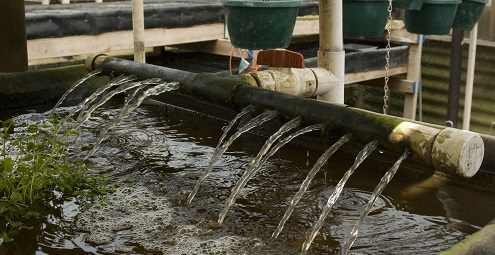CIRCULAR ECONOMY
 Cities consume large amounts of water and food resources. In the future, population growth, prosperity and climate change are expected to significantly increase pressure on natural resources, so it is essential that cities improve the management of incoming resources.
Cities consume large amounts of water and food resources. In the future, population growth, prosperity and climate change are expected to significantly increase pressure on natural resources, so it is essential that cities improve the management of incoming resources.
A strengthened circular economy is thus crucial for our future ability to produce food and to make our food production more environmentally and climate-friendly. Here, cities and urban agriculture systems can be the starting point for optimising our available resources. There are significant environmental and economic potentials to be gained by creating circular pathways capable of recycling nutrients, energy and water.
Fit-for-purpose recycling between countryside and cities
By identifying fit-for-purpose solutions capable of utilising nutrients and energy from urban waste in a different way than it is done today, we will be able to contribute to an increasingly circular economy.
We can facilitate a city's transition to an increased circular economy by establishing green facades and roofs that can collect rainwater, clean the air and absorb CO2. The purified rainwater can again be integrated as an element of green urban cultivation areas.
There is a need for a significantly higher degree of knowledge regarding the recycling of nutrients and organic matter, including the assessment of the risks and robustness of the agroecosystem in relation to undesirable substances associated with the long-term effects of especially phosphorus in some recycled products. There may also be an additional need to elucidate the effect of recycling on antibiotic resistance, micro-plastics in the soil, and effects on groundwater quality.
Would you like to get in touch with one of our urban farming experts?
Current research projects
- Nutrients for Higher Organic crop Yields (NutHY) WP4: Agro-industry residues as nutrient resources
- Invaluable - creating a sustainable industry for animal protein production based on insects
- GREEiNSECT – insects for a green economy
- Organic Food Systems Program - How to make food systems more sustainable.
- Sustainable, flavourful and healthy vacuum-dried products from food waste (WasteTaste)
- CRUCIAL - KU-SCIENCE's established long-term trials on waste biomass on farmland
- FoodSHIFT 2030
Project Proposals
- Long-term effects of phosphorus, in particular in recycled products
- Elucidation of the effect of recycling on antibiotic resistance, micro-plastics in soils, and effects on groundwater quality
- How insect production can become part of a circular economy
- Can water be collected via green roofs, facades and in basins as a planned component of the city's green areas?
- Can rainwater be purified with the help of plants and/or used directly for watering in dry periods?
- Calculation of environmental savings and economic costs of recycling urban waste water
You can use Urban Farming SCIENCE to:
- Consult on the development of fit-for-purpose solutions for municipalities
- Carry out risk and robustness assessments of agro-ecosystems and biotopes, with a focus on undesirable substances associated with production systems
- Provide advice on nutrient efficiency as well as the robustness of production systems and the environment with regards to recycling
